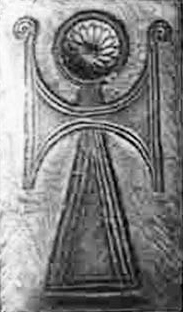Of Greek and Armenian parentage, G. I. Gurdjieff was born and grew up in the volatile Caucasus region located between Christian Orthodox Russia and Islamic Turkey, Iraq, and Persia. The date of his birth remains in question. More logical than 1866, the date usually given, is 1872. Both Olga de Hartmann—the woman Gurdjieff called "the first friend of my inner life"—and Louise Goepfert March, Gurdjieff's secretary in the early thirties, believed that Gurdjieff was born in 1872. For a discussion of the dates and why 1872 is the most reasonable, see William Patrick Patterson's Struggle of the Magicians, pp. 273-74.

His family moved from Alexandropol (present day Gyumri) to Kars shortly after its recapture by Russia from the Turks. There he was tutored by the Dean of the Russian Orthodox Cathedral and later by Bogachevsky, a candidate for the priesthood.

Dean Borsh tutored the young in the commandments and other Christian precepts. Gurdjieff speaks of him as "my unforgettable tutor, my second father," and writes that years after his tutor's death Gurdjieff requested that a full funeral service be held over his grave. He says: "Rest in peace, dear Teacher! I do not know whether I have justified or am justifying your dreams, but the commandments you gave me I have never once in all my life broken." The statement being so unequivocal it is odd that a belief yet remains among some that Gurdjieff was a Sufi. Gurdjieff was baptized a Christian, begins All and Everything with a Christian prayer to the Trinity of Father, Son and Holy Ghost, directed that his funeral be held at the Russian Orthodox Church and his burial be performed according to the church's prescriptions, and earlier when opening his Institute for the Harmonious Development of Man declared to his students: "The program of the Institute, the power of the Institute, the aim of the Institute, the possibilities of the Institute can be expressed in a few words: the Institute can help one to be able to be a Christian." Given the evidence, why would there be any doubt that Gurdjieff was a Christian? The confusion results from how Christianity is conceived. Gurdjieff is a Christian but, in the deepest sense, a "prehistoric Christian." For a more in depth discussion of this subject, read "Essential Questions: Who Is Gurdjieff? What Is the Origin of the Teaching", "Gurdjieff, Sufism & Mohammed" and also "Gurdjieff and Christianity."
Bogachevsky, known later as Father Evlissi, was "one of the first persons on earth," Gurdjieff said, "who has been able to live as our Divine Teacher Jesus Christ wished for us all." Bogachevsky became a monk at Mt. Athos but, apparently not finding what he wanted, left and went to Jerusalem. There he joined the Essene order, and was in time appointed an assistant to the abbot of their chief monastery. Gurdjieff said that Bogachevsky taught him that there were two moralities. One was objective morality. It is "established by life in the course of thousands of years and by the commandments given us by the Lord God Himself through His prophets, and it gradually becomes the basis for the formation in man of what is called conscience. And it is by this conscience that objective morality, in its turn, is maintained. Objective morality never changes, it can only broaden in the course of time." As for subjective morality, it pertains to individuals as well as to whole nations, kingdoms, families, groups of people and so forth. "It is invented by man and is therefore a relative conception, differing for different people and different places and depending upon the particular understanding of a good and evil prevailing in the given period." See G. I. Gurdjieff's Meetings with Remarkable Men.
Coming "to the whole sensation" of himself at an early age and recognizing the mindless mechanicality of human life, the question arose within Gurdjieff—what is the meaning and purpose of life on earth and of human life in particular?